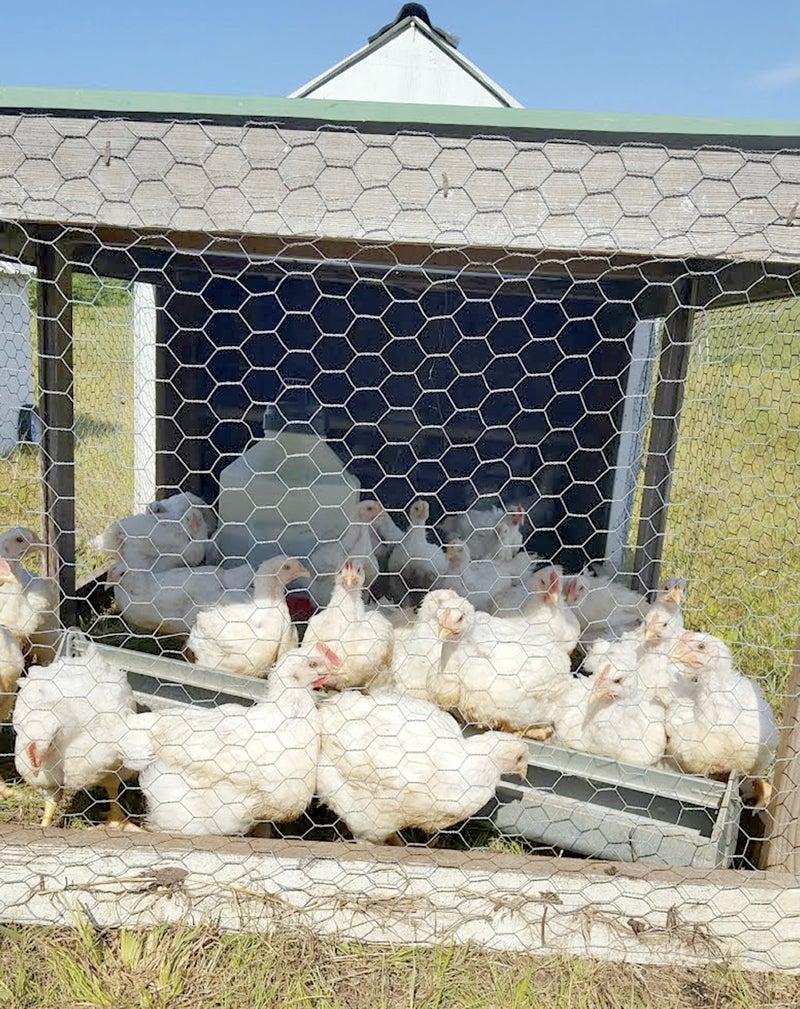Be sure to keep your backyard chickens clean
Published 12:00 am Friday, March 17, 2017

- Submitted photo It's important to keep your chickens clean and healthy.
By Morgan Watts
Rowan Cooperative Extension
It’s always a good idea to practice safe biosecurity in your backyard poultry operations. You may have already heard on the news about the two new cases of bird flu found in other parts of the U.S. With this information, don’t get too alarmed yet about the cases. Reports have said that both cases are different strains and hopefully isolated events.
Below are six tips that come to mind when thinking about biosecurity in poultry and things that you should be practicing in your flock at all times.
Keep in mind that some of these things are not feasible all the time. Things come up in life, and it may not happen every time. Don’t stress. Biosecurity is just about lowering your disease risks as much as possible.
Keep everything clean. This could be for a variety of different things. You need to wash your hands before and after being around your birds. It is also recommended that you wear different clothes and shoes when entering your birds’ pens.
Some people just prefer to disinfect their shoes and change their clothes to help keep things simple. This will keep you from tracking in any germs to your birds. You should also keep your cages and pens clean, and disinfect regularly all feeders, waters, etc.
Your vehicle can transmit diseases. If you travel to another farm, fair or place that sells live birds, you should make sure to wash your vehicle before returning home. Also, make sure that the inside is free of manure and dirt.
Quarantine new birds. Any new birds brought in should be quarantined at least 10 meters away from your existing flock for a minimum of six weeks. This will keep any issues that your new bird may have from being transferred to your flock. You should also keep in mind to take care of your existing flock before going to the quarantine area to keep from transmitting things through your clothes.
Keep a boundary fence up to help eliminate ways for wild water fowl to enter your area. Anything you can do to keep wild birds out will help you out.
Know the warning signs of a sick bird. Early detection can prevent the spread of diseases.
- Increase in sudden bird deaths;
- Sneezing, coughing, and nasal discharge;
- Lack of energy and poor appetite;
- Tremors, drooping wings, circling, twisting of the head and neck, or lack of movement;
- Watery and green diarrhea;
- Drop in egg production or soft-shelled, misshaped eggs;
- Swelling around eyes, neck, and head;
- Purple discoloration of the wattles, comb, and legs.
Report any sick birds or any increased mortality to state health officials. It’s always a good idea to consult the state veterinarian if you have a bird show up sick or if you are experiencing increased mortality to see what may be going on.
If you have any questions concerning biosecurity in your poultry flock, please contact Morgan Watts, Rowan County Cooperative Extension Livestock Agent, at 704-216-8970.



